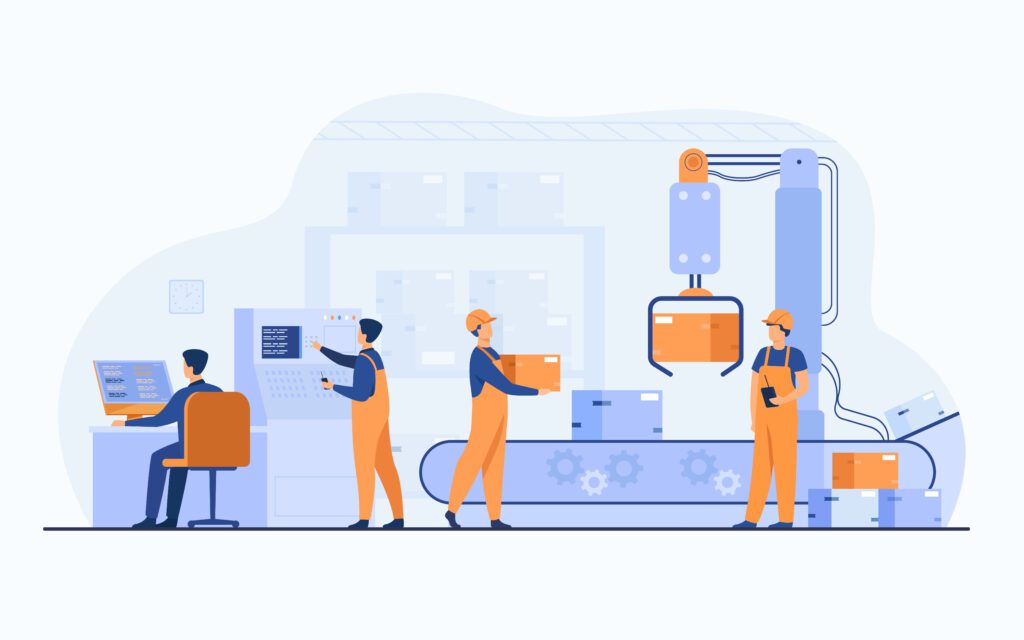If you own or operate a manufacturing unit or factory in India, obtaining a Factory Permanent License is not just a formality—it’s a legal requirement that ensures your business operates within the law. This license, mandated under the Factories Act, 1948, safeguards worker rights, enforces safety standards, and helps you avoid heavy penalties or shutdowns. In this blog, we’ll explain what the Factory Permanent License is, why it’s important, and guide you through the process to obtain it smoothly.
What Is a Factory Permanent License?
A Factory Permanent License is an official document issued by the local state Factory Licensing Authority under the Factories Act, 1948. It grants legal permission to operate a factory that employs a specified number of workers or uses particular types of machinery.
Typically, factories with 10 or more workers (using power) or 20 or more workers (without power) need to obtain this license before commencing or continuing operations.
Why You Need a Factory Permanent License
Legal Compliance
Operating a factory without a permanent license is illegal and may lead to serious legal consequences, including heavy fines, forced closure, or criminal proceedings against the management.
Worker Safety & Welfare
The license ensures your factory meets safety standards such as proper ventilation, fire safety, sanitation, and machinery safety, creating a safe workplace environment for your employees.
Business Credibility
Having a valid license improves your company’s reputation with clients, investors, and regulatory bodies, ensuring smoother operations and future expansions.
Eligibility & Prerequisites
Factories are required to apply for a permanent license if they meet the following conditions:
- Employ 10 or more workers with power machinery, or 20 or more workers without power machinery.
- Engaged in manufacturing activities as defined by the Factories Act.
- Adhere to safety, health, and welfare standards set forth by the government.
Before applying, make sure your premises comply with building regulations, have safety equipment installed, and proper worker facilities.
Step-by-Step Factory Permanent License Application Process
1. Application Submission
File an application with your respective State Factory Licensing Authority, either online or offline, depending on your state’s portal facilities.
2. Documentation
Submit necessary documents such as:
- Factory layout plan
- Ownership proof
- List of machinery and workers
- Safety and fire compliance certificates
3. Inspection
An inspector from the Factory Department will visit your premises to verify safety compliance, worker welfare, and machinery standards.
4. Approval & Issuance
Once the inspection is satisfactory, the licensing authority issues the Factory Permanent License, allowing you to legally operate.
Common Pitfalls & How to Avoid Them
- Incomplete Documentation: Ensure all required documents are submitted correctly to avoid delays.
- Non-Compliance with Safety Standards: Regularly audit your factory to meet safety norms.
- Delays in Inspection: Schedule timely inspections and maintain records for smooth approvals.
Renewal & Modifications
Factory licenses typically need renewal every 3 to 5 years, depending on state rules. If you expand your factory or add new machinery, apply for license amendments promptly to stay compliant.
FAQs About Factory Permanent License
Q1. How long does it take to get a Factory Permanent License?
Typically, 30 to 60 days, depending on state and inspection schedules.
Q2. Can I apply for the license online?
Many states now offer online application portals for ease and transparency.
Q3. What happens if I operate without a license?
You risk heavy fines, legal action, and possible closure of your factory.
Q4. Is the license transferable if I sell the factory?
No, the new owner must apply for a fresh license.
Q5. What if I add new machinery after license issuance?
You must apply for a license modification to include the changes.
Conclusion
A Factory Permanent License is essential for legal, safe, and credible factory operations in India. By following the prescribed steps and maintaining compliance, you safeguard your business and workforce. For a hassle-free application, consider consulting with experts who can guide you through the entire licensing process efficiently.


